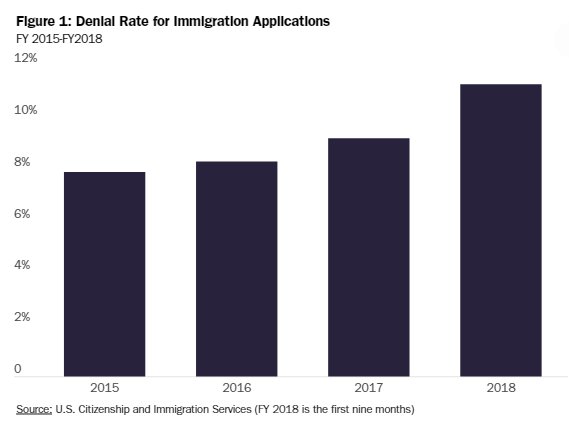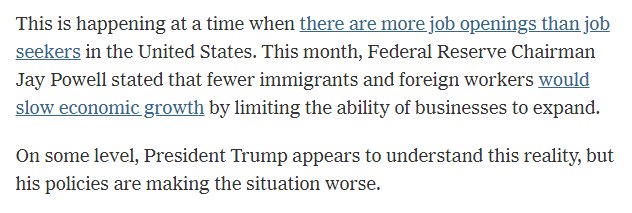By this I did not mean legal responsibility, but rather a personal responsibility.
First of all, I just passed 6k followers and I’m floored. I am absolutely amazed that so many people find why I say interesting enough that they might wasn’t to here more.
Or the memes make you crack up.
Either way, I thank you all
First of all, I just passed 6k followers and I’m floored. I am absolutely amazed that so many people find why I say interesting enough that they might wasn’t to here more.
Or the memes make you crack up.
Either way, I thank you all
By this I did not mean legal responsibility, but rather a personal responsibility.
Art is definitely protected by the first amendment.
I have said
When I was a kid, the news, with the exception of the occasional fluff piece, was terribly boring.
Monotone anchors told the audience about the days events.
They reported facts with no spin on it.
I think news as infotainment
trump rose to power, not because he was good at leading, but because he was so absurd that people “Howard Sterned” him.
Those who loved him wanted to see what he would do next.
People who hated him did the same
Every absurd statement, every scandal propelled him into the top stories of the day.
We need to make the news boring again. Fewer editorials and more facts.
Can we please have more outlets like NPR who don’t rely on partisan advertising for revenue?
The sum of human knowledge fits in the palm of your hand now.
Information is powerful.
Disinformation is too.
Information is health food.
Infotainment is junk food, it’s fun, and sometimes it tastes great, but you should consume it in moderation.
Wear a mask. Be safe. Stay healthy and thanks for reading.
More from Politics
Based on this analysis: "Denials for immigration benefits—travel documents, work permits, green cards, worker petitions, etc.—increased 37 percent since FY 2016. On an absolute basis, FY 2018 will see more than about 155,000 more denials than FY 2016." https://t.co/Bl0naOO0sh

"This increase in denials cannot be credited to an overall rise in applications. In fact, the total number of applications so far this year is 2 percent lower than in 2016. It could be that the higher denial rate is also discouraging some people from applying at all.."
Thanks to @gsiskind for his insightful comments. The increase in denials, he said, is “significant enough to make one think that Congress must have passed legislation changing the requirements. But we know they have not.”
My conclusion:

1. Lin Wood shares the password
2. Website has an article where the first letter of each sentence matches password
3. Title of article is an anagram for issac kappy

4. Somehow the file is stored in tor because of the reference to torsocks
5. Nobody has done an in depth analysis of the source code to see if there’s any hints there
6 search engine searches for slack, tor, and website returned nothing
https://t.co/lCajyM4TWp @sistronk @Crazy_German17 @boy17_tommy @105artillery @thecoffeebarons @Mareq16 @MKEBRAWLER @RealMaciejHelak @C8red8r @FabianBlondel @LaureenZapf
https://t.co/4tUs7tESwg
Silicon Valley is modelled after Crassus

https://t.co/vsTrS43Fft

#OTD 73 years ago, CIA was born after President Truman signed the National Security Act of 1947.
— CIA (@CIA) September 18, 2020
\xa0
Separated into five directorates, the Agency collects, analyze and disseminates intelligence to top U.S. officials.
\xa0
Learn more about today's #CIA: https://t.co/diMVOoC3jT pic.twitter.com/ljoTxBYbAc
https://t.co/rUTYg42PYH
War is being pushed upon us by 'news'
— Maria \u23f3 (@ml_1maria) April 21, 2018
Journalists are bribed to write pro-American and anti-Russian
Bribed to lie, betray, manipulate & push for war #CIA #propaganda
Dr Udo Ulfkottehttps://t.co/MsPh5vOwTW pic.twitter.com/Z5GVEzSKBd
https://t.co/1r0MbPv8wG
Former CIA agent and whistleblower Phillip Agee explains that the USA wages economic war against socialists nations because it is threatened by a successful example of an alternative economic system. 1/ pic.twitter.com/NUpdpxnYgw
— \U0001d482\U0001d48d\U0001d48a\U0001d484\U0001d48a\U0001d482 (@alicia_dl_1) July 23, 2020
War on democracy - installing US-puppet dictators in Latin America in order to control their economies
#Guatemala #Arbenz #RedScare
Propaganda, "harmless bombing" and a CIA terror campaign

CIA war on Nicaragua
CIA operation in Nicaragua
— Maria \u23f3 (@ml_1maria) July 19, 2020
Destabilisation program: rip apart the social and economic fabric - make the people suffer as much as you can, until the country plunges into chaos, until at some point you can step in and impose your choice of government on that country. pic.twitter.com/dlxoMZX6xw
You May Also Like
i wonder if you can make a thread bout witchcraft in malaysia.. or list of our own local gods/deites..
— r a y a \U0001f319 (@lcvelylilith) February 20, 2020
Before I begin, it might be worth explaining the Malay conception of the spirit world. At its deepest level, Malay religious belief is animist. All living beings and even certain objects are said to have a soul. Natural phenomena are either controlled by or personified as spirits
Although these beings had to be respected, not all of them were powerful enough to be considered gods. Offerings would be made to the spirits that had greater influence on human life. Spells and incantations would invoke their
Animist ceremonies of a religious or magical nature were normally held for the purpose of divination or making a request. This would either be done at a keramat or at a shrine similar to the Thai spirit houses or Chinese roadside shrines pic.twitter.com/I1hliyi0x3
— \u2745\u1710\u170b\u1713\u170e (@uglyluhan) June 16, 2019
Two known examples of such elemental spirits that had god-like status are Raja Angin (king of the wind) and Mambang Tali Arus (spirit of river currents). There were undoubtedly many more which have been lost to time
Contact with ancient India brought the influence of Hinduism and Buddhism to SEA. What we now call Hinduism similarly developed in India out of native animism and the more formal Vedic tradition. This can be seen in the multitude of sacred animals and location-specific Hindu gods

















